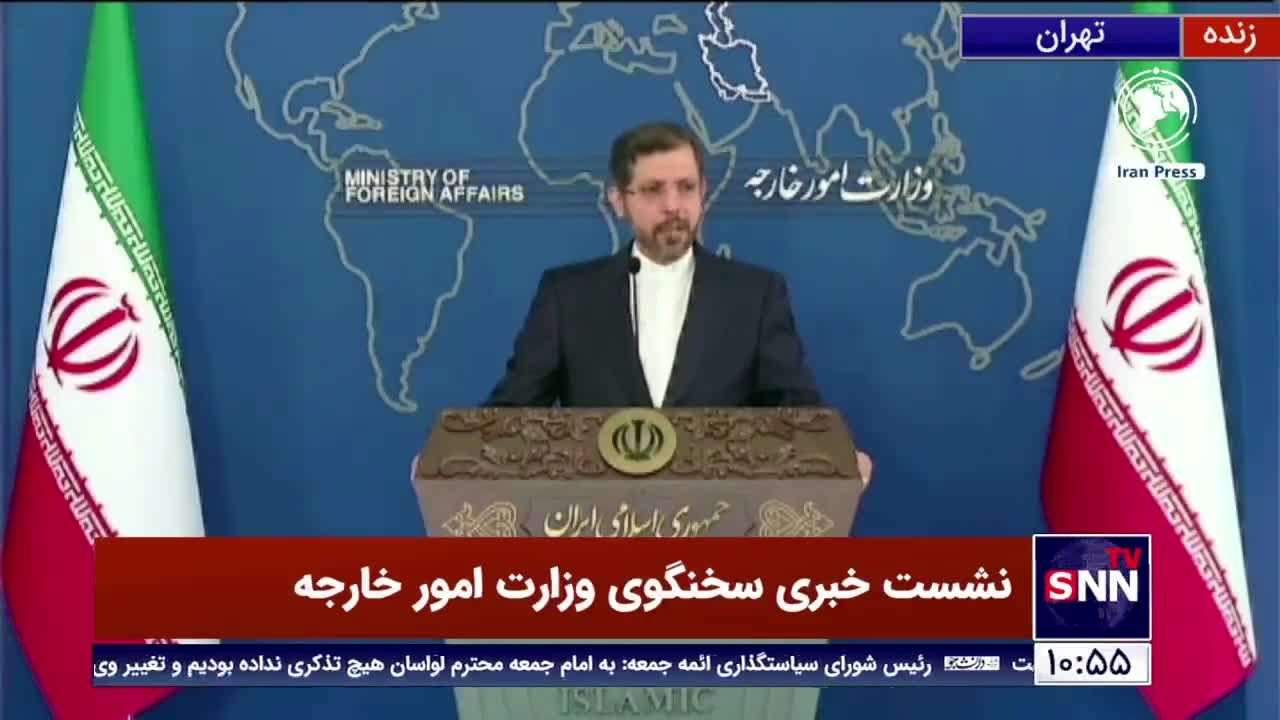Week of November 8th, 2021 | Iran Unfiltered is a weekly digest tracking Iranian politics & society by the National Iranian American Council
- Iran Outlines What It Seeks in Vienna
- Iran Releases Vietnamese Tanker, Warns U.S. Drones
- Iran’s COVID Vaccination Rate Up, But Other Rare Diseases Are Increasing
Iran Outlines What It Seeks in Vienna
Iran’s Foreign Ministry Spokesperson Saeed Khatibzadeh outlined what Iran seeks from the Vienna JCPOA negotiations. Khatibzadeh said regarding wanting a guarantee that the U.S. will stick with the JCPOA: “America must give a guarantee that no U.S. government will again mock the world and international law and repeat this situation again [i.e. leaving the JCPOA].”
Khatibzadeh added: “The U.S. has a clear path for returning to the JCPOA. It must accept that as the party responsible for the current situation, it must reverse this path it has taken. To reverse this wrong path, it must lift the oppressive and illegal sanctions imposed after its withdrawal from the JCPOA all at once and in a consequential way.”
Khatibzadeh also said Iran does not seek a “step by step” return to the JCPOA. He said the principle for the Vienna negotiations is “nothing is agreed upon until everything is agreed upon.”
Meanwhile, Iran’s Deputy Foreign Minister Ali Bagheri, who is the new chief nuclear negotiator, is travelling to France, Germany, the UK for bilateral talks on the nuclear issue and other issues.
In France, Bagheri said Iran will not continue the nuclear negotiations from where they left off. Separately, Iran’s foreign ministry has said Iran has a new proposal and will not return to the point where the negotiations left off.
Bagheri also said Iran is not engaging in “nuclear negotiations.” He said the nuclear issue was resolved with the JCPOA, and the current negotiations are centered on lifting U.S. sanctions that violate the deal.
Russia and the European parties to the JCPOA have all called on Iran to restart the Vienna negotiations from the point they left off at in June.
Iranian analyst Ali Shukuyee wrote about Russia’s relations with Iran in an article for the reformist Fararu. He said that Russia and Iran have many mutual interests and areas for cooperation, but that Russia had two redlines: Iran developing nuclear weapons and Iran exporting natural gas to Europe.
Iran Releases Vietnamese Tanker, Warns U.S. Drones
The IRGC has freed an oil tanker belonging to Vietnam. The tanker was seized on October 24. As explained in last week’s issue of Iran Unfiltered, the U.S. and Iran gave differing accounts of the tanker’s seizure. Iran claimed the U.S. transferred Iranian oil to this tanker to seize it, while the U.S. rejected this claim.
Separately, Iran’s official state news agency said Iran’s army warned U.S. drones away from a military exercise in the Persian Gulf. Iranian media claims U.S. MQ9 and RQ4 drones approached Iranian territory during the ongoing “Zulfiqar 1400” military exercise east of the Strait of Hormuz.
Iran says these two drones left the area after being warned. Roughly one fifth of global oil passes through the Strait of Hormuz.
These two incidents in the Persian Gulf and Gulf of Oman come weeks before the next round of nuclear negotiations will take place in Vienna. Confrontations between Iran and the U.S. in the Persian Gulf have greatly increased since the Trump administration reneged on the JCPOA and sought to eliminate Iran’s oil exports.
Iran’s COVID Vaccination Rate Up, But Other Rare Diseases Are Increasing
According to Iran’s Health Ministry, roughly 80 percent of Iranians have had one dose of a COVID vaccine and 54 percent have had two doses, as of November 4th. The daily death rate in Iran has significantly decreased since the Delta variant peak in August but is still higher than levels seen during parts of last summer. On November 8th, 140 more people died from COVID in Iran, bringing the official country-wide total of COVID deaths to 128, 439.
Meanwhile, Masoud Mardani, a member of Iran’s Committee to Confront AIDS, has warned other rare diseases have increased in Iran since the COVID pandemic started. He said Iranian physicians have lost their focus on identifying and preventing diseases like AIDS.
Mardani also said other rare diseases have been misdiagnosed as COVID-19 and thus, not treated properly. He said Iran has a shortage of medicine to treat AIDs and other rare diseases.
Back to top

